An Author Interview
A short time ago we reviewed “The Author” by Facundo Raganto and now here are
Twenty Questions with Facundo (a little lengthy but very interesting)
The Author or The Characters' Short Living Story by Facundo Raganato
BookroomReviews 1. Where or how did you come up with the idea for this book? It’s really is like nothing I’ve read before.
Facundo :
Thank you very much. Its authentic originality is one of the main reasons of why I am very proud of it. I began writing it when I was 16 years old. The story was originally a short story. By that 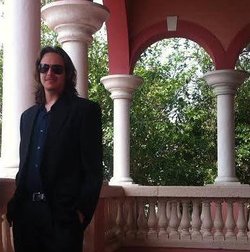 time, I used to write a lot of short stories to practice writing, composition and explore words. The spark of its inception was influenced by a very personal experience I had with someone really special to me, which, for now, I rather not say much about it . . . However, I took the time to develop the characters before starting the story; its main purpose was to put into practice figures of speech and literary techniques. Soon enough, the story began to grow naturally thanks to the Characters, the enormous depth of philosophical, psychological, alchemical, literary, spiritual, and mystical contents, and, of course, The Author.
time, I used to write a lot of short stories to practice writing, composition and explore words. The spark of its inception was influenced by a very personal experience I had with someone really special to me, which, for now, I rather not say much about it . . . However, I took the time to develop the characters before starting the story; its main purpose was to put into practice figures of speech and literary techniques. Soon enough, the story began to grow naturally thanks to the Characters, the enormous depth of philosophical, psychological, alchemical, literary, spiritual, and mystical contents, and, of course, The Author.
BookroomReviews 2. When you sit down to write do you have an idea where you are going or does it just happen as you’re sitting there? Or is it actually the Characters writing the story?
Facundo : For this particular story, I had the idea of where the story would go, but, of course, as any organic writer would know: the actual process of writing inspires and grows the story naturally; it changes, it develops, like a tree; it expands and flourishes. I, Facundo Raganato, am very proud of the Characters; they allowed the story to be better than I imagined being; however, I’m not sure The Author would be that humble to say the same . . .
BookroomReviews 3. What was your favorite chapter (or part) to write and why?
Facundo : I can say that one of my favorite chapters to write and read is Chapter XIII “Underworld.” As I was writing previous chapters, I already had the setting, the ideas, and multiple contexts to include. In its carefully planned composition, I couldn’t wait to bring to life that chapter and see how the Characters “(and The Author)” would act through the flux of writing it. Furthermore, I was excited to see what would inspire to the story after writing it. Now, as I read it, I can recognize the immense depth and enjoy the details of the descriptions which paint the chapter alive. There are many parts and scenes I admire very much, and I truly enjoyed writing them for the sake of the Characters . . .
BookroomReviews 4. Is anything in your book based on real life experiences or purely all imagination?
Facundo : I have an incredible, unexpressed world inside of me which relates very directly to this story; no one really knows about it but me . . . The actual experiences and events that happen as they are described literally in the story are not based on my life. However, metaphorically, yes.
BookroomReviews 5.You have a lot of quotations from different authors at the beginning of each chapter, What is your favorite quote from a book of fiction?
Facundo : I have tons of quotes I adore from the immense blissful world of Literature, but since this story is focused on The Mind, then I think I would choose this one: “When someone seeks,” said Siddhartha, “then it easily happens that his eyes see only the thing that he seeks, and he is able to find nothing, to take in nothing because he always thinks only about the thing he is seeking, because he has one goal, because he is obsessed with his goal. Seeking means: having a goal. But finding means: being free, being open, having no goal.” ― Hermann Hesse, Siddhartha
BookroomReviews 6. On that vein who would be your favorite Author? What writers influenced you?
Facundo : Regarding this story, I think the most appropriate ones would be to say Poe and
Baudelaire in terms of style. However, I am still keeping myself disciplined to go in depth into classical authors for inspiration, insight, wisdom and knowledge in terms of literature; Shakespeare, Percy Shelly, Wordsworth, Keats, Milton, Coleridge, James Joyce, Yeats, Emily Dickinson, Herman Hesse, Neruda, Garcia Marquez, Blake, Kafka, Whitman, Thomas Mann, Jorge Luis Borges, and many others.
BookroomReviews 7 Do you have a favorite fictional character?
Facundo : I have six of them. From another author, I would say “The Underground Man” from Dostoevsky’s ‘Notes from Underground.’
BookroomReviews 8. What five words describe you?
Facundo :Deep. Creative. Generous. Pure. Strong.
BookroomReviews 9. What if any project are you working on now?
Facundo : As a very dynamic, energetic, and extremely creative Artist as I consider myself to be, I have tons of projects under my sleeve right now; ranging from paintings, music compositions, stories, poems and scripts. However, I would like to mention that I’m organizing The Alchemical Bibliotéque, which will open December 25th, 2015 in the official web page of this story www.thecharactershortlivingstory.com. Since it expands the world of The Author, it is accessible only to those Readers who have read the story.
BookroomReviews 10. What has been the toughest criticism given to you as an author?
Facundo : Luckily, I haven’t received many tough criticisms. Most of the ~ Excuse me, Facundo. I would prefer to answer this question myself directly. As ‘The Author,’ I have been called: sadistic, mean, evil, selfish, unmerciful, dark, and other atrocities which can be categorized as synonyms. ~ . . . Most of the criticisms I received, for now, have had a positive slant. Some readers mentioned that the story had ‘grammatical errors,’ but they are not considered errors if they are made on purpose . . . this includes my especial syntax as well. I think the toughest one I had to process was by a reviewer who called the story “flimsy.” I was offended at first because the story can be perceived as ‘flimsy’ on purpose for many reasons; the most obvious reason is because the content is so strong and deep that the story had to be unfolded delicately and organically true in its nature in order balance it out, another reason is because this special journey does not have one particular idea or message for the Reader to receive like most fiction books, to the contrary . . . However, the composition of the story is carefully structured in a way that every Reader will have different interpretations, sometimes even paradoxical ones, so I understand if the subjective mind can consciously and/or subconsciously influence interpretations through the flux of reading, especially in this story.
BookroomReviews 11. What has been the best compliment?
Facundo : I have had many inspiring and unbelievable compliments from diverse Readers. Susan Violante from Reader Views said: “It is a piece of genius literature. The philosophical content is the treasure behind each character, and behind each scene.” Her words made me appreciate more deeply the years I’ve spent writing it. The very insightful author Martha Jette also agreed with that compliment and said: “We all have much to learn from Raganato’s work. If we could only put the lessons into practice, our world would be a much better place.” Martha Jette’s words inspired me greatly because she clearly expressed what I am doing . . . And lastly, Diane Donovan said: “Much like Carlos Castaneda, Joseph Campbell, or other mystical travellers, The Author provides the questions (in the form of its characters and their struggles) and documents the process of questioning, observation, analysis, and spiritual awakening” Diane surprised me enormously; Castaneda and Campbell (among others) are my masters, I never imagined The Author would be compared to my masters like this . . .
BookroomReviews 12. Have you written a book you love that you have not been able to get published?
Facundo : I have 2 more books already written. They are ready; baked like a cake, I just need to go back to them and add the frostings and the details so the Readers can enjoy it. And, I have another novel which I never finished, but this one depends on how my life unfolds.
BookroomReviews 13. Do you hear from your readers much? What kinds of things do they say?
Facundo : Most of them enjoy the vivid details which make the story feel like a film, very visual. They enjoy the twists of the “plot,” the intrigue of where the characters are going, the mystery of the story, and the surprises The Author unfolds. Many have questions about the in-betweens and the not-very-direct meanings. Some have critical but “fair” opinions about The Author.
BookroomReviews 14. What do you think makes a good story?
Facundo : Composition, Content and the magiThe Author or The Characters’ Short Living Storyc light of Creativity. If the skeleton of the structure is well-organized in terms of harmony and balance for the Reader, then The Reader will have a satisfying feeling of closing the book and saying: “This is a good story.” Regardless the flashbacks and fast-forward, stories have beginning, middle and end in the most basic level, they require a composition of storytelling for the Reader to understand that it is a “story”. Furthermore, the content of the story is what delivers to the Reader; the content is what defines the story to be ‘good.’ Therefore, the content must be rich, with context and quality. The content can touch universal themes like love, hope, fear, lust, injustice, freedom, yet they require that magical light of creativity in order to express it authentically, uniquely, purely, true from the writer’s heart, mind and soul. I am speaking in terms of what I believe to be the essence of a ‘good story.’
BookroomReviews 15. I think I know your answer but , what’s more important to you Characters or plot?
Facundo : Regarding this story, Characters are more important. However, this story is unlike other stories . . . Now, I think stories in general need both elements; I think Characters and plot are equally important.
BookroomReviews16. What do you like to do when you’re not writing?
Facundo : I read books and poetry. I research about many things which spark my interest like astrology, history, culture, philosophy, spirituality and the society. I paint, draw and write a lot. I play piano or guitar when the phases of inspiration come to me. I take walks around my neighbourhood to feel the breeze, enjoy the warmth of the sun, watch the blue sky, listen to the silence of the night, contemplate and meditate under the stars. I spend time with my family and hang around with my friends.
BookroomReviews17. How about a snippet from your book that will hook a prospective reader and make them want to read your book.
Facundo : The Author does not allow me to share much about the story when it involves the Characters . . . but I will share this: “Go to a pond. See how still the water is? Unmoved? Untouched? Isn’t beautiful how it is? If you happen to find a stone nearby, throw it to the pond. You will see, how delicately, the waves of the pond react to the impact of the stone upon the water. That is, the line, which separates the water and the sky, is waving upon your actions; that is, the stone sinks underwater.” – The Author
BookroomReviews18. What are the most important elements of good writing? According to you, what tools are must-haves for writers?
Facundo : Literature is very much like the other Arts. The more knowledge, wisdom, practice, insight, passion and interest one has about the Art, the greater the perspective and possibilities one can create, especially when it is connected with the everlasting and magical power of Imagination. Perhaps a metaphoric analogy would explain my example better: A musician may say the only tool he/she requires is the instrument itself, because it is through the instrument where the music we hold inside shines out, it radiates, it ignites, it inspires. The music is the literature. The notes are the words. The scales are the sentences. The content is its world. The composition is the story. The balance of our inner and outer worlds in combination with the harmony of the flux of creation is the key that the Arts require in order to efficiently deliver to the audience Beauty and Truth . . . In simple terms, the only tools a writer must have is a Pen and a Paper.
BookroomReviews 19. How did you get into writing? Is this what you always wanted to do?
Facundo : Ever since I was little, my brother and I used to play a lot with action figures and create stories. During my teenage years, I began to be more interested in reading world literature and poetry. With time, I began to express myself through music and writing. I’m not sure if writing is what I always wanted to do, but now I’m sure writing is what I always want to do. However, I have an insatiable passion for the Humanities.
BookroomReviews 20. Any last thoughts for our readers?
Facundo : You have the entire universe inside of you. You have been blessed by this divine 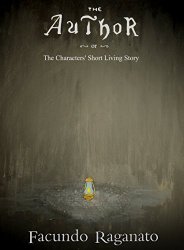 experience we call Life, and since it may not last forever, use the precious time to make the choices you desire, take the paths you believe to be right, and, most importantly, cherish deeply the moments you share with others. Do not let anything keep you from losing the opportunities that Life presents to you, not even yourself; you are far more powerful that you allow yourself to be, all you need to do is believe in yourself. Know yourself. “Let your verse be the happy occurrence, Somehow within the restless morning wind, Which goes about smelling of mint and thyme… And all the rest is literature.” – The Art of Poetry, By Paul Verlaine Translation by Eli Siegel
experience we call Life, and since it may not last forever, use the precious time to make the choices you desire, take the paths you believe to be right, and, most importantly, cherish deeply the moments you share with others. Do not let anything keep you from losing the opportunities that Life presents to you, not even yourself; you are far more powerful that you allow yourself to be, all you need to do is believe in yourself. Know yourself. “Let your verse be the happy occurrence, Somehow within the restless morning wind, Which goes about smelling of mint and thyme… And all the rest is literature.” – The Art of Poetry, By Paul Verlaine Translation by Eli Siegel
To learn more about his very unique book check it out ————–>HERE
Views: 227
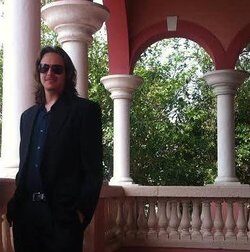
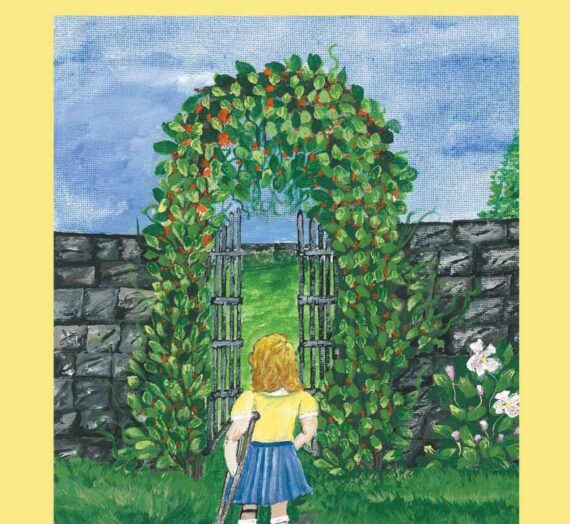
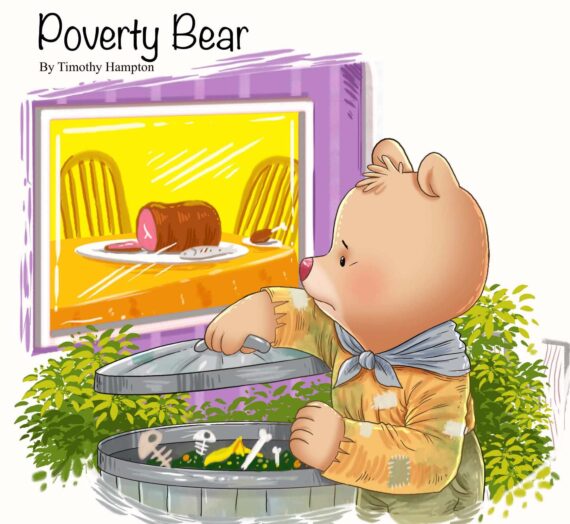
C. Lee McKenzie
A fabulous interview. Enjoyed his choice of favorite characters.